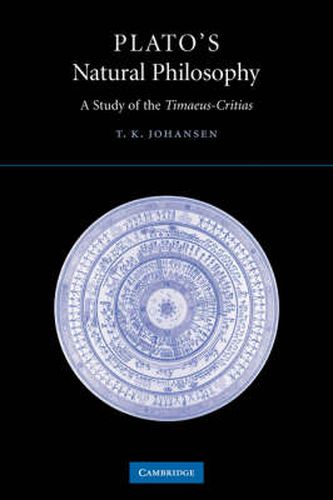Readings Newsletter
Become a Readings Member to make your shopping experience even easier.
Sign in or sign up for free!
You’re not far away from qualifying for FREE standard shipping within Australia
You’ve qualified for FREE standard shipping within Australia
The cart is loading…






Plato’s dialogue the Timaeus-Critias presents two connected accounts, that of the story of Atlantis and its defeat by ancient Athens and that of the creation of the cosmos by a divine craftsman. This book offers a unified reading of the dialogue. It tackles a wide range of interpretative and philosophical issues. Topics discussed include the function of the famous Atlantis story, the notion of cosmology as ‘myth’ and as ‘likely’, and the role of God in Platonic cosmology. Other areas commented upon are Plato’s concepts of ‘necessity’ and ‘teleology’, the nature of the ‘receptacle’, the relationship between the soul and the body, the use of perception in cosmology, and the work’s peculiar monologue form. The unifying theme is teleology: Plato’s attempt to show the cosmos to be organised for the good. A central lesson which emerges is that the Timaeus is closer to Aristotle’s physics than previously thought.
$9.00 standard shipping within Australia
FREE standard shipping within Australia for orders over $100.00
Express & International shipping calculated at checkout
Plato’s dialogue the Timaeus-Critias presents two connected accounts, that of the story of Atlantis and its defeat by ancient Athens and that of the creation of the cosmos by a divine craftsman. This book offers a unified reading of the dialogue. It tackles a wide range of interpretative and philosophical issues. Topics discussed include the function of the famous Atlantis story, the notion of cosmology as ‘myth’ and as ‘likely’, and the role of God in Platonic cosmology. Other areas commented upon are Plato’s concepts of ‘necessity’ and ‘teleology’, the nature of the ‘receptacle’, the relationship between the soul and the body, the use of perception in cosmology, and the work’s peculiar monologue form. The unifying theme is teleology: Plato’s attempt to show the cosmos to be organised for the good. A central lesson which emerges is that the Timaeus is closer to Aristotle’s physics than previously thought.